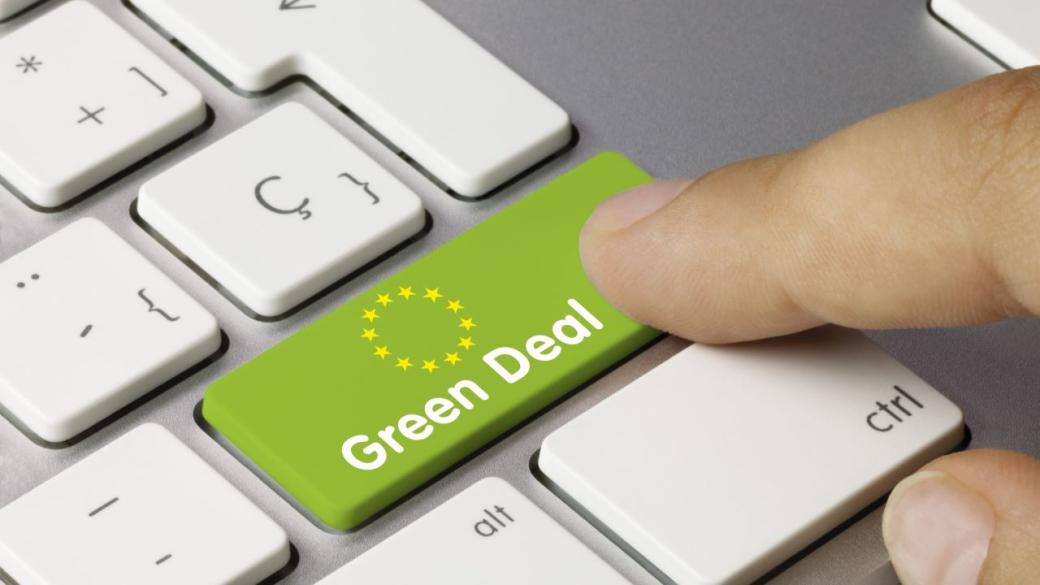Fact-check | Is the Green Deal to blame for high food and energy prices?
The Green Deal's legislative proposals are wide-ranging and complex, and politicians simply assess them in political discourse

© ECONOMIC.BG / Depositphotos
In public debate, the European Green Deal is often presented by political opponents as the main reason for high energy and food prices in the EU. This is a convenient argument for critics of climate policy, as it draws on real public concern about inflation in recent years.
We find such an example from March 12, 2024, when the vice president of the European Conservatives and Reformists (ECR) group in the European Parliament, Robert Rus (Netherlands), stated in a plenary debate that the European Green Deal was the reason for the price increases. The quote is an excerpt from a debate during which Roos promoted his own political party, appealing to the current widespread concern caused by rising food and energy prices and claiming that this was due to the European Green Deal.
This claim is largely untrue, as cost increases in Europe are undeniable, but they are not due to the Green Deal package, but rather a long-term consequence of COVID-19 and Russia's war in Ukraine.
As a source for his statement, Rus cites comments made by Didriuk Samsom, the architect of the Green Deal, during a discussion with Brügge on March 31, 2022. Samsom plays an important role in the European Green Deal as head of the cabinet of European Commission Executive Vice-President Frans Timmermans, who is himself the main figure responsible for the European Green Deal.
The relationship between Rus and Samsom is conflictual and characterized by tension, particularly with regard to climate policy, as Samsom is an outspoken supporter of measures to combat climate change and promote sustainability, while Rous criticises these initiatives, considering them harmful to the economy and national sovereignty. Samsom can be considered a primary source, as he works closely with Timmermans on the project, which he explained during the debate. However, there is no explicit mention of the Green Deal, but rather of measures for Europe's independence from Russia, so Rus uses Samsom's statement, which takes it out of context, to express his own concept.
What is the Green Deal?
The Green Deal is a package of policy initiatives aimed at leading the EU towards a green transition, with the ultimate goal of achieving climate neutrality by 2050.
In 2019, the European Parliament declared a climate emergency and subsequently presented a new strategy which, among other things, aims to reduce greenhouse gas emissions by 55% by 2030 (compared to 1990 levels).
Plans have also been drawn up to reduce pollutant emissions, combat deforestation, promote the spread of organic farming, and implement a circular economy model. Although this transition involves high costs, many experts emphasize the long-term economic and environmental benefits.
Price increases
As Rus argues, data from the Hamburg Institute for International Economics show that energy and food prices have risen significantly, reaching a major peak between 2022 and 2023.

However, according to experts, the reasons for these increases are more likely to be global factors, such as the long-term consequences of the COVID-19 pandemic and the Russian invasion of Ukraine, which began in 2022, which have had an aggravating effect. On May 30 and 31, 2022, the European Council agreed to ban almost 90% of all Russian oil imports by the end of 2022, with a temporary exemption for crude oil delivered by pipeline. Russia's military aggression against Ukraine therefore has a direct and significant impact on food security and food availability worldwide.
Regarding the closure of companies, what Rus said is partly true. In fact, due to new environmental regulations that increase operating costs in the short term, some companies may be forced to close or relocate.
However, many other companies are investing in green and sustainable technologies, seeing the Green Deal as an opportunity.
Considering all points, the statement contains elements of truth, such as rising prices, and a partially true summary, i.e. that some companies are leaving.
The Green Deal's legislative proposals are wide-ranging and complex, and politicians simply assess them in polarized political discourse (for or against) rather than going into detail. In fact, right-wing political parties typically conflate sustainability with the economic interests of industries or farmers, while green and left-wing parties attack the EU for failing to take action to save the planet from the climate crisis. However, cost inflation in Europe is not due to the Green Deal, but to other reasons, such as the pandemic or the war in Ukraine.
Therefore, Rus's statement is a position based on his own political orientation and personal thinking, rather than a well-founded fact.
Translated with DeepL.
Co-Funded by the European Union. Views and opinions expressed are however those of the author(s) only and do not necessarily reflect those of the European Union. The European Union cannot be held responsible for them.


 Economic.bg
Economic.bg